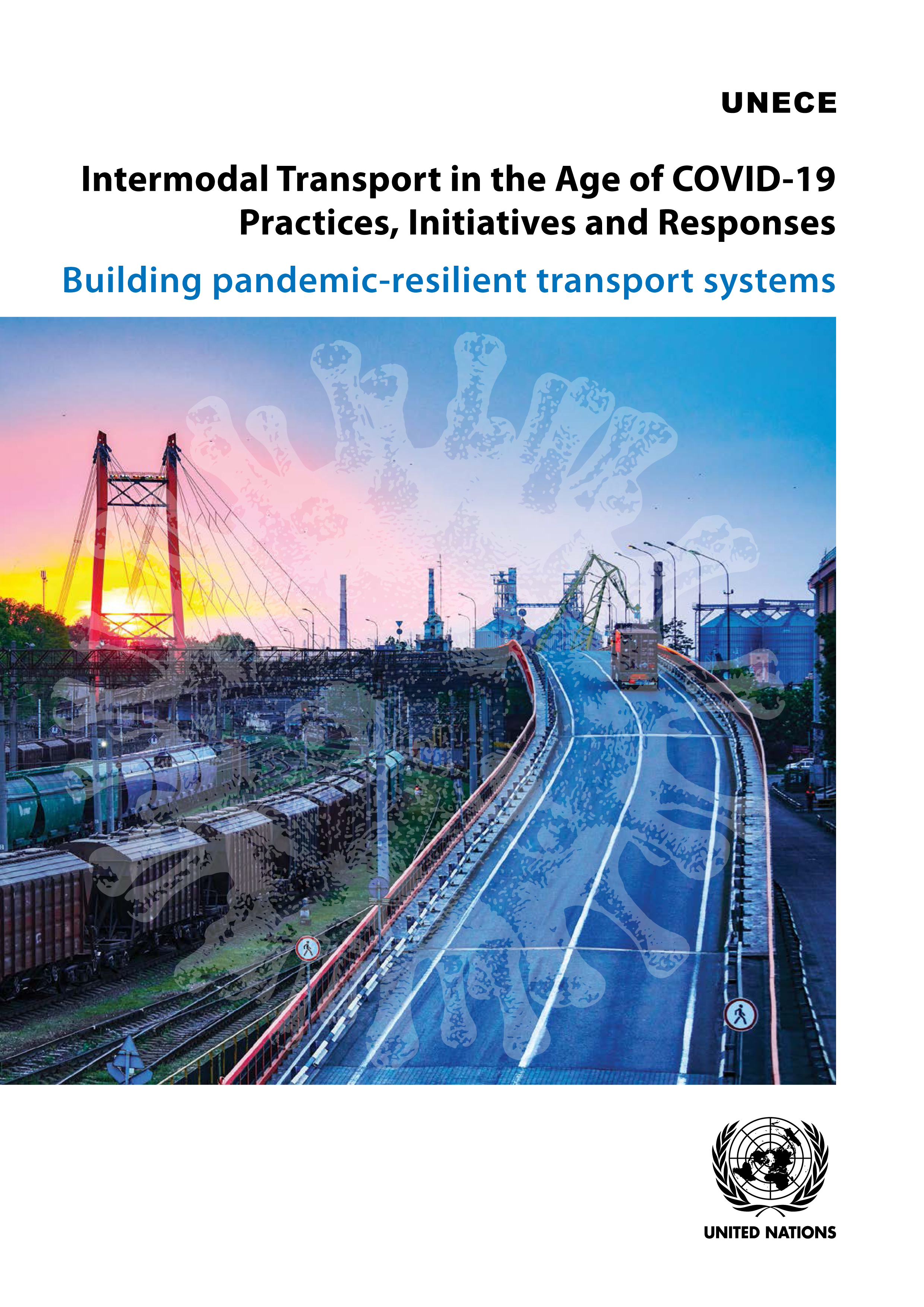Introduction

- Author: United Nations Economic Commission for Europe
- Main Title: Intermodal Transport in the Age of COVID-19 Practices, Initiatives and Responses , pp 1-3
- Publication Date: April 2021
- DOI: https://doi.org/10.18356/9789210055260c003
- Language: English
In the wake of the COVID-19 pandemic, many Governments around the world closed their borders to non-citizens and non-residents (e.g. through visa issuance bans or mandatory health cards/ health certificates) or imposed on those entering extended periods of self-isolation in order to limit the spread of the virus while implementing lockdowns, strict social distancing and contact tracing measures. In an initial reaction, many Governments closed their land, air and sea borders to non-essential traffic. These measures had as a result that tens of thousands of trucks got stuck at borders not only across the ECE region but across the entire globe which had a significant impact on the delivery of essential goods, such as foods, pharmaceuticals, medical supplies and fuels, especially for the economically most vulnerable countries which often rely heavily on imports to cover their basic needs. Countries carried out controls for passengers and crews (mainly temperature control) upon arrival but no controls were made before departures. Therefore, one infected passenger/ driver or crew member could easily become a super spreader and spread the disease to many others during her/his journey on board of a plane, ship, train, truck or bus or during transit time in terminals. Finally, the widely spread virus quickly forced countries to lock down cities and even entire regions or nations at a later stage.
-
From This Site
/content/books/9789210055260c003dcterms_title,dcterms_subject,pub_keyword-contentType:Journal -contentType:Contributor -contentType:Concept -contentType:Institution105



